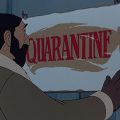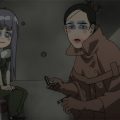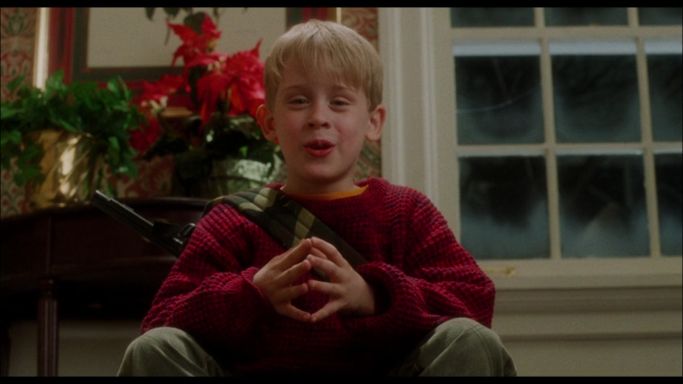Quarantine Control #37: Skywalker in a Blindspot

The ledes for the Quarantine Control posts have been understandably grim for a while, what with the many deaths from the Covid-19 pandemic — quite a few of which were preventable. But things are looking a little brighter now thanks to the vaccine that has finally arrived around the United States and parts of the world, albeit in limited quantities. The most vulnerable have to be vaccinated first before drug producers have enough doses to provide for all the general public. It will take a while for everyone to get vaccinated, and news about the virus in the meantime will continue to be horrifying thanks to the record-breaking number of infections and deaths (especially in the US), but at least we know things will get better soon.
Geoffrey Barnes
Star Wars: The Rise of Skywalker (2019)
Source: Disney+
Episodes: 1 movie (thankfully the last in the sequel trilogy)
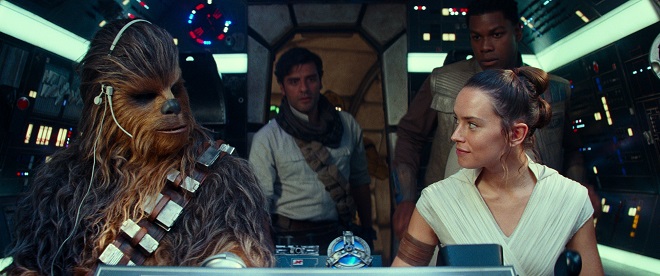
It was apparent from the promotional period for Star Wars: The Rise of Skywalker’s theatrical release that Disney had no idea how to follow up The Last Jedi (I posted my thoughts here). That film in the series garnered good critical and financial receptions despite the intense divisiveness towards it, but it was clear from the moment they rehired JJ Abrams, who directed The Force Awakens, that they wanted something more conventional compared to the risky chances TLJ took. This meant TROS had the task of both concluding the trilogy and “fixing” the “problems” the previous movie contained. Considering that task and the knowledge that the writers and directors didn’t plan out the whole story from the start, it’s an unsurprising mess.
The way in which the movie turned out is a pity considering the solid ideas established in its predecessors, and several good ideas from TLJ are completely excised. The one controversial death from TLJ isn’t undone (although it made plenty of sense and they shouldn’t do anything about it), but a couple of its best ideas involved criticizing the Jedi’s methods throughout history and establishing how it was possible for a normal person like Rey to become force sensitive and eventually skilled. Leave it to TROS to take both of them right out back and fire a laser through them throughout the film, to show how Rey’s fate was all laid out for her and for the other subplot to disappear. Rey’s fate is a twist that wasn’t even implied in previous films, which makes it too obvious that it was just made up for this film. It’s all as hackneyed as it sounds.
There’s an even bigger problem. I mentioned how this movie had a lot to tackle in the lede for this small review because it does tackle too much. It’s TROS’s mission to conclude enough plot threads that could have made for two full-length films, and resolve them over the course of around two hours and 15 minutes. The pacing moves at a breakneck pace, and plot threads are resolved too quickly. It would have been more fulfilling for this film to end after the first climactic battle, and for the story to continue in a fourth movie to make for a quadrilogy, with other plot elements and characters touched upon too lightly being fleshed out along the way. But it’s clear Disney and some of the worst extremely online fans around wanted to be done with this story here, so this is how it had to be.
This storytelling decision results in several previously-important characters being tossed aside like yesterday’s garbage. Finn’s problems, in fairness, first emerged in TLJ, where he was nowhere near as important to the story compared to TFA. But he’s treated even worse here. He has a constant presence in the events, sure, but he’s largely along for the ride. Poe was barely a character in TFA (he was reportedly supposed to die early on, and it shows), but TLJ did a fantastic job giving him purpose. That’s tossed aside entirely in this film, outside of saddling him with a stereotype and the surfacing of an old friend (Zorii Bliss, played by Keri Russell) who also doesn’t get enough development. And poor Rose Tico does so little in the film that it questions why they even brought her back.
You might notice that all the returning characters given the cold shoulder are minorities, a real bad look even if this was likely unintentional. Of the new characters introduced in this trilogy, the movie only provides satisfactory resolutions for Rey and Kylo Ren, while the others get stiffed.
The movie’s plot contrivances are resolved so quickly that it’s tough to keep track of them, and it never takes an opportunity to breathe. For as critical as I am here, though, I didn’t end up hating it or feel like shutting it off before it finished. Make no mistake that TROS is a disappointment compared to the lineage of Star Wars films and shows that have come before, primarily thanks to the way it tells its story, but the ride to the end is thrilling. The movie is well-directed from a choreographic perspective despite its visuals not being quite as striking as TLJ’s. It contains some of the best action sequences to grace the series, and thankfully doesn’t fall into nonsensical slow-pacing issues and total cheese like Attack of the Clones. The new locations in this movie and TLJ show how much more can be explored in the Star Wars universe, which I hope they’ll do in other installments. It’s a shame this particular film doesn’t do that.
It’s easy to see why TROS had the worst critical reception of not only the newer Star Wars films, but any film in the series. It falls flat by the end, enough for a movie watcher (i.e. me) to elicit a “What the hell was that?” while the credits roll. There’s nothing worse than seeing an entertainment work with solid ideas squander them, but it’s particularly bad when it occurs with a beloved franchise. There’s a reason why Disney is setting none of the newly announced Star Wars shows and movies near the so-called “Sequel Trilogy.” All three movies in this series should show Disney that worldbuilding is very important, and previews for upcoming works imply that they might realize that.
Angela Moseley
As 2020 draws to a close it will go down as one of the worst and most turbulent years in modern history. It’s hard to believe one year could contain so many disasters– each of which would be noteworthy on its own. We only touched upon a few of them in Tuesday’s Naughty and Nice. This new decade may have gotten off to a bad start, but the second year of a new millennium ushered in a dark age. Other than a few personal noteworthy events, it’s difficult to remember anything else in 2001 beyond one sunny Tuesday morning on September 11.
Blindspot: The Road to 9/11 (2020)
Source: Any podcatcher of choice
Episodes: 8
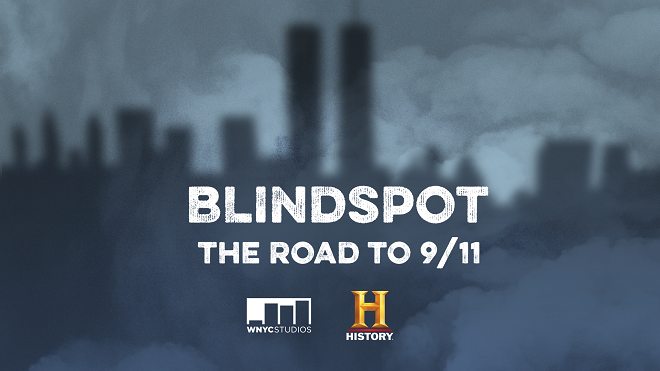
I didn’t go looking for Blindspot: The Road to 9/11 as much as it came to me. WNYC’s On the Media was promoting one of their station’s newest podcasts. OTM co-host Brooke Gladstone interviewed Blindspot host Jim O’Grady. He talked about where he was on 9/11 and how the show was a co-production between WNYC and the History Channel’s Road to 9/11 documentary series. O’Grady wanted to remind people that the terrorist attacks on September 11 were not a horrible event that materialized out of nowhere. Or that the terrorists involved were solely motivated by religion. He revisits the facts and events leading up to that day via interviews with over 60 people including people who knew the terrorists, FBI agents, journalists, and other experts. The show then kicked off with the first episode titled “The Bullet.” I was hooked and subscribed to the podcast and patiently waited as a new episode was released every Wednesday for eight weeks.
The first episode revisits the year 1989 and covers Al Qaeda’s earliest movements in New York City. Their first act of terrorism started with the assassination of Meir Kahane, a rightwing extremist rabbi by El-Sayyid Nosair in 1990. After Nosair’s capture, the NYPD teamed up with the FBI and soon it was revealed that he didn’t work alone, but was actually part of a group led by the ideology of violent jihad. Originally, this group was ignored because they were trained by America and fought against the Russians in the Soviet-Afghan war. Once the Russians were driven out of Afghanistan, the fighters turned their attention to fighting the United States as a way to address their numerous political grievances.
The deadly shot that rang out in 1990 was just an opening salvo for years of terrorism that would take place in the US and around the world in the 11 years before 9/11. Blindspot also tells the story of Emad Salem, a former Egyptian army soldier who swore revenge against those responsible for assassinating the Egyptian president, Anwar el-Sadat in 1981. That assassination was inspired by the radical Muslim cleric, Omar Abdel-Rahman, aka The Blind Sheikh. Salem immigrated to the United States and was soon recruited by the FBI to infiltrate the terrorist cell in New York and Jersey City. He also saw his infiltration as a way to take revenge on the Blind Sheikh. While Salem was an excellent informant for the FBI, they pulled him off the case just after he obtained vital information about a big upcoming attack in New York City. The move would turn out to be a huge blunder, as the cell group successfully detonated a bomb in the basement of the World Trade Center in 1993.
The podcast then tells the tale of Salem being brought back to the FBI to uncover and foil the Landmarks bombing plot which was meant to be a follow up to the World Trade Center bombing. Not long after the Blind Sheikh was captured and convicted with Salem’s help. The podcast then moves onto World Trade Center bombing mastermind Ramzi Yousef, how he was on the lamb abroad for two years, and how he was eventually captured. When he was brought to the US to face trial, FBI agent Frank Pellegrino flies him over the World Trade Center towers and says “See Ramzi? They’re still standing.” Yousef then replies, “If we had more money we would have brought them down.”
I don’t want to spoil too much more of the podcast, but it also covers the early life of Osama bin Laden and how he went from a comfortable life as the son of a billionaire to the leader of Al Qaeda. O’Grady then explains how FBI agents could have taken him down during the Clinton administration, and how Yousef’s plans fly planes into American buildings were picked up and given new life by his uncle, Khalid Sheikh Mohammed. Even the Twin Towers’ origins are touched upon– including their design being inspired by Islamic architecture only to be cruelly and ironically brought down by Islamic radicals. By the time we get to the Bush administration, all of the warning signs of a major terrorist attack are there and even the FBI has all the pieces of the puzzle.
Blindspot: The Road to 9/11 is a great look into history, especially if you haven’t considered the terrorists attacks since September 11, 2001 or you weren’t alive on that day. It shows while American intelligence agencies are good at their job, lax policy, bureaucratic red tape, and a failure to put together key pieces of clues spread out over 11 years failed to stop what would become the mass-murder of thousands of people on American soil.
Joseph Daniels
This week, a group of friends find themselves in a possibly alternate Shibuya, being introduced to deadly, malicious games designed to kill their participants.
Alice in Borderland (2020)
Source: Netflix
Episodes: 8
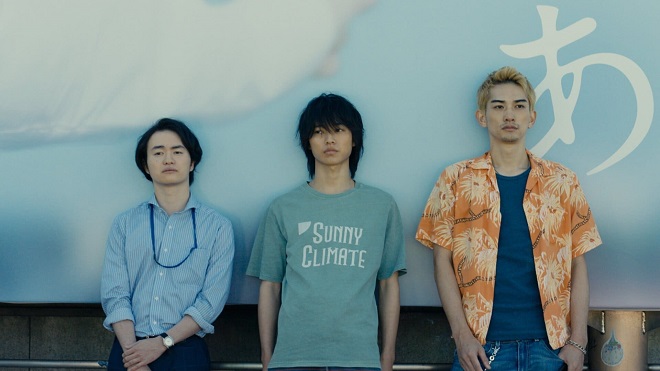
Kind of sounded like a certain Square-Enix property, right? The World Ends With You actually predates the Alice in Borderland manga by three years, and with the manga getting adapted to television, perhaps this is why there’s a sudden and renewed interest in TWEWY. Square has to remind everyone who came first.
But that’s not to say the pretender to the “playing games in Shibuya to survive” throne isn’t good, because it is. It can also be pretty dark. Don’t expect every character to survive. In fact, the show seems to enjoy seeing how much graphic detail it can get away with when killing people off, main characters or not. That said, it’s definitely not as graphic as the Saw franchise, so if you’re worried about that, I’d say this show lands somewhere in the middle, between shows that cut away from the violence and instead show reaction shots and shows that wish to depict as much detail as the filmmakers know how.
Plus, the show isn’t confined to the shopping district. Games can take place throughout Tokyo at the whim of whoever’s running them. In the season one cliffhanger, we get to see someone we think is running the games, but with all the layers involved and with how many red herrings there had been thus far, it’s hard to trust that we’re getting the whole truth. I suppose if I’d read the manga, I’d know for sure. This is sort of like speculating who the killer is in the Beastars anime when the manga’s available and can easily be consulted for the answer.
Please don’t spoil who the killer is, by the way. Season two is out next month and I plan on sailing the high seas, if you catch my meaning.
It can feel satisfying to get what answers we do get in the season finale of Alice in Borderland, and if we don’t get a second season, I suppose we’re going to have to track down the manga so we know where everything was going, especially with the way it ended, seemingly promising a lot more to come. The surviving cast at the end of the first season seems like they’re going to be the main cast of season two, but keep in mind that the third episode basically establishes that anyone can die at any time, no matter how attached to them you are. It turns out that characters you thought were the main cast are actually supporting cast, and perhaps the series itself is being written with the same callous disregard for human life that the game’s mysterious master shows towards the players. It especially loves the gut punch of giving a character’s back story and getting you to care for them, right when it’s time to remove them from the story. If I didn’t know better, I’d think Tite Kubo wrote this series.
If Alice in Borderland sounds interesting to you, go ahead and give it a try. If not… yeah, I don’t blame you. The show can get pretty heavy at times. I also can’t promise next week’s subject matter won’t be heavy either…
There was encouraging Covid-19 news this week, yes, but recent news is also showing how the journey to mass distribution of the vaccine will be paved with misery and inanity. And it’s much worse to know that some misery was intentionally inflicted on the so-called strongest nation in the world. The good news doesn’t mean you should stop protecting yourself and others around you, so everyone should still heed the health warnings.

